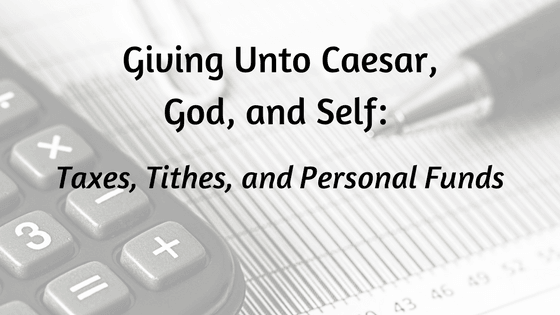
Root your financial decisions in God’s Word. Discover Scripture-based guidance on debt, stewardship, generosity, contentment, and navigating money with a Christ-centered perspective. These articles bring clarity, encouragement, and timeless Biblical principles to modern financial challenges.
Tithing while in debt requires a balance between our spiritual commitments and our financial responsibilities. Today, we’re discussing tithing while in debt, with an emphasis on how you can contribute to building His Kingdom, even when you’re facing financial challenges.
Continue readingEstimated reading time: 13 minutes
Have you ever wondered if canceling a credit card is a wise financial move—or if it could bring unexpected difficulties to your financial future? Maybe you’ve had a credit card for years, but now you’re wondering—should I cancel it to avoid temptation? Or will closing it hurt my credit? These are real concerns for many Christians who want to honor God with their finances.
We’re called to be good stewards of our resources, but navigating the world of credit scores, debt, and financial responsibility in a way that honors this calling isn’t always obvious.
Continue readingThe concept of the Year of Jubilee, rooted in ancient biblical law, offers a unique lesson about debt and financial freedom. In today’s world, where debt is a growing burden for many, exploring the Jubilee year offers valuable insights and inspiration for modern debt relief practices.
Continue readingThere is so much wisdom to be found in the Bible to guide us to successful Christian debt management. The Bible has a few different passages that cover debt and general finances. In 1 Timothy 6:10, Paul says “The love of money is the root of all evil.” For this reason, Jesus says Christians should not be overly concerned with money. A Biblical budget is an honest budget, which also teaches us to be content with what we have (Hebrews 13:5).
These two principles— not worshiping money and being content with what we have—are excellent foundations for Christian personal finance.
The Bible teaches that a faithful Christian’s primary focus should be on God and the things of God, not money or material things. Matthew 6:33 says “But seek first his kingdom and his righteousness, and all these things will be given to you as well.”
Christian debt management means being wise with our personal finances. God entrusted us with money so we can be good stewards, give it to others and further the kingdom of God. It’s important that we honor our blessings by not placing our faith in money, but storing our treasures in heaven.
Practicing Biblical Budgeting for Christian Debt Management
It is also important as Christians to be content with what we currently have. Hebrews 13:5 says “Keep your lives free from the love of money and be content with what you have.”
And lastly, Paul said for us to view money through a Biblical lens, he told Timothy in 1 Timothy 6:17-19 , that it was good and profitable if people put their hope in God and store up treasures in heaven that cannot be corrupted by moths or rust. He goes on to say that our worldly treasures will quickly perish and decay when compared to the imperishable riches in heaven. Also, Paul told Timothy not to be concerned for those things that would not allow him to lead a godly life and instead encourages him to trust God who gives us everything we need.
Whenever we need guidance on Christian finance and Christian debt management, we certainly do not need to look very far.
Taxes, Tithes, and Personal Funds

Romans 13:6-7 instructs Christians to attend to finances in this manner: to pay taxes, revenue, respect, and honor to whom each is owed.
We hustle to cover mortgage payments, daily living expenses, and the unplanned events in life. With all that, it’s easy to forget about giving unto Caesar and giving unto God. It’s even more likely individuals forget that God has given them gifts for the purpose of enjoyment.
Continue reading
4 Practical Guidelines for Giving
It’s that time of year when it seems everyone and their mother is asking for donations.
After reading this blog post about giving, I started examining my own household’s giving practices. I had to admit we don’t always give our first and best—and we don’t always give with the right motives, either.
The Bible makes it clear that it’s not just what, but how we give that matters. With that in mind, here are four giving guidelines I’m trying to put into practice. Hopefully, they’ll give you something to think about, too.
Continue reading
The Best (Free!) Way to Amplify Your Giving
When I glanced at my bank account balance the other day, I noticed several monthly gifts and offerings had been deducted as usual.
No big deal. I began to move down my to-do list like any other day, but something stopped me.
For the first time in a while, I actually thought about where the money was going. And then I wondered why it rarely occurred to me to pray about it.
Continue reading








